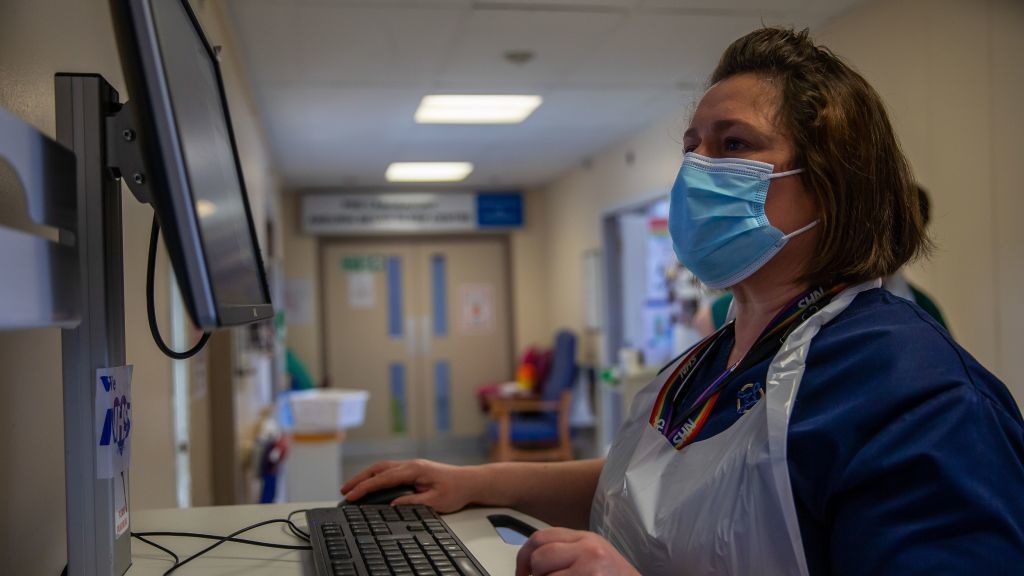Care.data: Why business should learn from the NHS' mistakes
A lack of public awareness is one reason the Government has delayed the NHS Care.data programme by six months.

Sign up today and you will receive a free copy of our Future Focus 2025 report - the leading guidance on AI, cybersecurity and other IT challenges as per 700+ senior executives
You are now subscribed
Your newsletter sign-up was successful
Unfortunately, some experts say the NHS appears to have put too much emphasis on technical safeguards understandable given the mixed track record of NHS IT and too little on explaining the work to the public.
"The program has great potential, and could change the way healthcare is provisioned for the better," says Steve Fortes, at consultants PrivacyTrust.
"The key issue is trust. Unfortunately, its implementation has been a textbook example of what not to do. At times it seemed like they [the NHS] spent their budget on getting the technology right, and trust was an afterthought." This is what the organisation now needs to fix.
And, as Hilary Thomas, a partner in the health and life sciences practice at KPMG points out, the NHS has, rightly, been cautious about disclosing data in the past. "It has always had a bias against disclosure, against information getting into the wrong hands," she says.
But the tools available now for data analysis are so powerful and the volumes of data are potentially so great that there would be a huge, missed opportunity if the NHS were unable to make better use of it. At the same time, the system is unlikely to work, if 70m people have to provide active consent.
Healthcare has already seen some interesting examples of the use of anonymous data; Ms Thomas points to Google's flu maps as one example. But the NHS has provided to be a poor communicator of the benefits of its database.
And this is the lesson that private companies should learn too. It is one thing to collect data, but another to share it. We're only at the start of the "big data" journey, and businesses need to be open, and honest, with their customers, if they are to keep their trust.
Sign up today and you will receive a free copy of our Future Focus 2025 report - the leading guidance on AI, cybersecurity and other IT challenges as per 700+ senior executives
Stephen Pritchard is a contributing editor at IT Pro.
-
 ITPro Excellence Awards winners unveiled
ITPro Excellence Awards winners unveiledIt's time to celebrate excellence in IT. Read on for the full list of winners...
-
 This new mobile compromise toolkit enables spyware, surveillance, and data theft
This new mobile compromise toolkit enables spyware, surveillance, and data theftNews The professional package allows even unsophisticated attackers to take full control of devices
-
 NHS leaders are keen to adopt new digital tools, but IT can't solve problems on its own
NHS leaders are keen to adopt new digital tools, but IT can't solve problems on its ownA survey of healthcare decision-makers finds they believe IoT devices and electronic health recording could help them reach more patients quicker
-
 How a paperless approach cut wasted staff hours at Bradford Teaching Hospitals Trust
How a paperless approach cut wasted staff hours at Bradford Teaching Hospitals TrustCase study Through DrDoctor’s digital portal for patient appointments and advice, the Rheumatology team at Bradford Teaching Hospitals NHS Foundation Trust has dramatically cut
-
 Healthcare’s next chapter
Healthcare’s next chapterwhitepaper Revolutionizing how you care with EPR experts you can trust
-
 How digital experience management helped an NHS trust improve productivity
How digital experience management helped an NHS trust improve productivityCase study Princess Alexandra Hospital NHS Trust used digital experience management to cut device failure and restore time to clinicians
-
 Will the NHS Federated Data Platform transform UK healthcare?
Will the NHS Federated Data Platform transform UK healthcare?In-depth Plans to create a data platform in partnership with the private sector could revolutionize NHS treatment, but concerns over data privacy and security are festering
-
 NHS IT issues costing doctors more than 13 million hours annually
NHS IT issues costing doctors more than 13 million hours annuallyNews Doctors warn that ageing IT infrastructure is impacting patient care and clinical outcomes
-
 Automation is helping the NHS clear its patient backlog, but not as quickly as expected
Automation is helping the NHS clear its patient backlog, but not as quickly as expectedAnalysis The healthcare service's big bet on robotic process automation is making 'impactful' but slow progress
-
 DHSC sets out ambitious targets for NHS App by 2023, beyond
DHSC sets out ambitious targets for NHS App by 2023, beyondNews Ongoing NHS digitisation efforts will form backbone of the new system